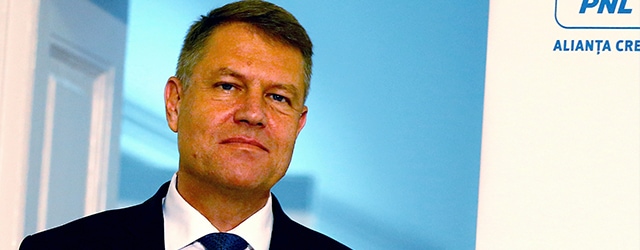Romania | Newsmakers

The international financial community will be watching developments in Romania closely following the unexpected victory of Christian Liberal Alliance conservative candidate Klaus Iohannis in the second round of presidential elections on November 16. Iohannis defeated prime minister and Social Democrat leader Victor Ponta, taking 54.5% of the vote against 45.5%. He will be sworn in as president after December 21, taking over from Traian Bsescu who has been in power for 10 years.
Unlike Ponta, who promised (apparently unfunded) public-sector wage and pension rises, Iohannis campaigned on an anticorruption ticket, recognizing that this remains Romania’s Achilles’ heel. The contest was not without controversy: Polling stations overseas closed prematurely in both rounds, which some believe was orchestrated by the government, as many of the 300,000 Romanian expatriate voters favored Iohannis. Their support helped Iohannis win, despite the fact that Romania’s state-owned media overwhelmingly backed Ponta.
So who is Iohannis? An ethnic German from Transylvania and a Lutheran, he was a high school physics teacher before becoming mayor in 2000 of Sibiu, a Saxon city renowned for its beautiful architecture and squares. Iohannis has overseen restoration to boost tourism, and the city is now regarded as one of the most appealing and progressive in Romania.
“I want a new kind of politics in our country: less show, less noise and more concrete solutions,” he declared during the election.
His challenge now, in a role which has real power, is to coexist with Ponta’s government, which still has some 18 months of its mandate remaining. Relations between Ponta and Iohannis are likely to be shaky, with the latter boosted by his fresh political mandate and Ponta undermined by losing the election.
Then there’s the economy. Growth seems to be wavering—after a 3.5% rise in GDP last year, the IMF says GDP will rise just 2.4% this year against an earlier projection of 2.8% (with 2.5% predicted for 2015). To boost economic growth, Ponta has pushed through a 5% cut in employment taxes, although the IMF says this could leave Romania with a funding gap, making it unable to reduce the budget deficit next year to 1.4% of GDP. Iohannis has said one of Romania’s main priorities should be boosting foreign direct investment. Whether or not he and Ponta can work together to secure this could prove key for Romania’s future.



